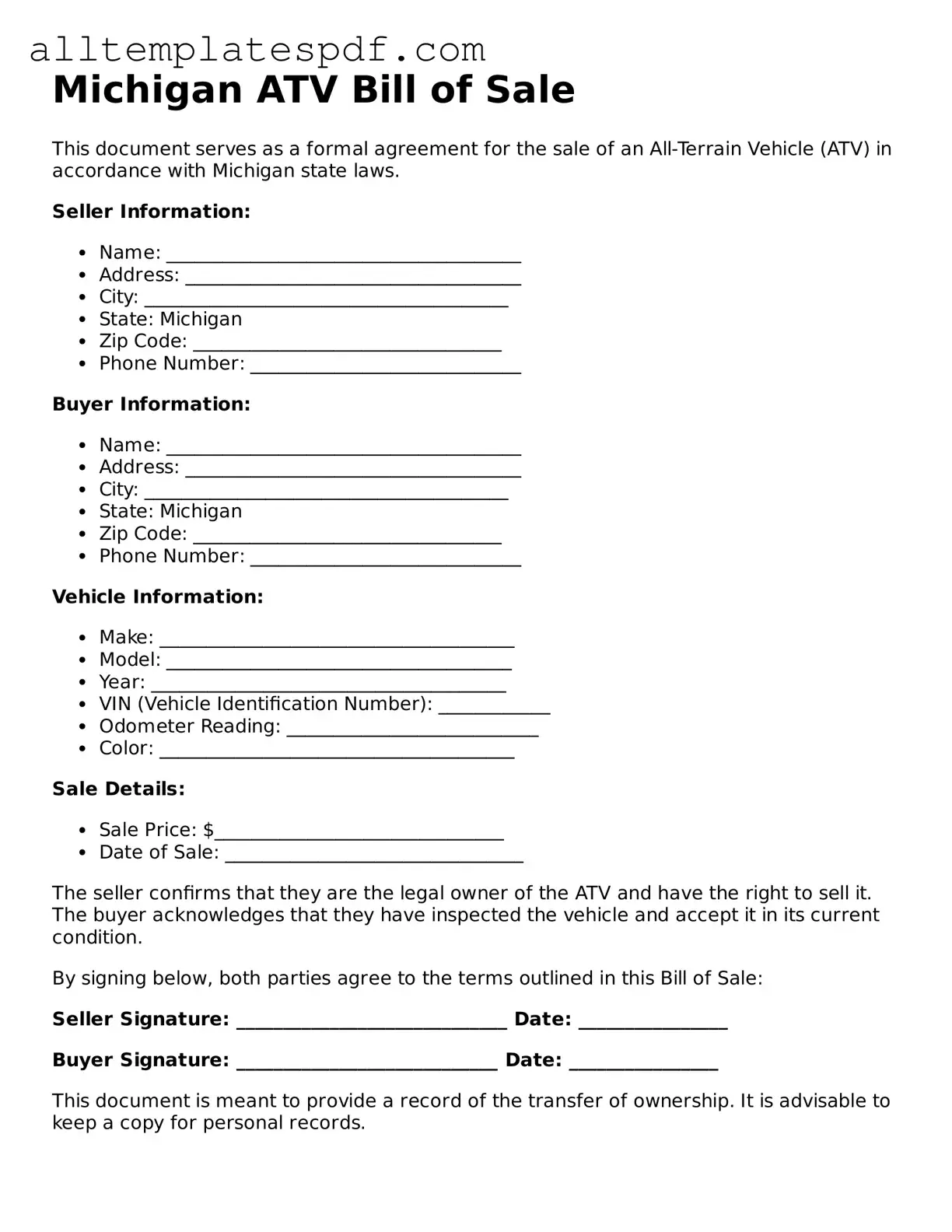Blank ATV Bill of Sale Template for the State of Michigan
The Michigan ATV Bill of Sale form is a legal document that records the transfer of ownership of an all-terrain vehicle (ATV) between a seller and a buyer. This form serves as proof of the transaction and includes essential details such as the vehicle's identification number, sale price, and the parties involved. Understanding and properly completing this form is crucial for both buyers and sellers to ensure a smooth transfer process.
To get started, fill out the form by clicking the button below.
Open Editor

Blank ATV Bill of Sale Template for the State of Michigan
Open Editor
Fast and easy form completion
Complete ATV Bill of Sale digitally — fast and easy.
Open Editor
or
↓ ATV Bill of Sale PDF Form
